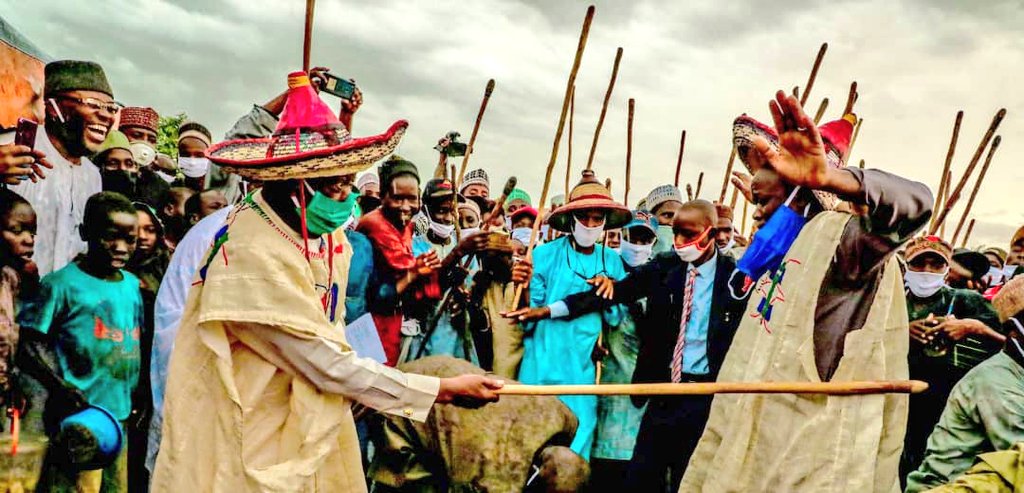Governor Umar Ganduje, on Saturday, launched the first Ruga settlement in Kano.

The ruga settlement is situated at the Yanshoshi forest in Kiru Local Government Area of the state.

The settlement will be a total of 200 units of houses, schools, hospital, police station, earth dam for cattle rearing among others.

However, during the commissioning of the RUGA settlement, Ganduje said “This is the first batch of the housing units of 25 out of 200 units earmarked for construction.”
He called on the federal government to put a halt to the movement of herdsmen from other African countries to the country.
Read Also: Ruga, Only Way To Have Peace In States -Miyetti Boss Bodejo
According to him, the call was necessary in order to “successfully and effectively prevent the coming of herdsmen from other African countries, because they come to this country with guns and other weapons which flame the clash between herders and farmers. As they come with such weapons, they take crimes and criminalities to the country. That movement is what brings to us all sorts of clashes between herders and other communities, apart from the farmers.”
The governor added that the Yanshoshi ruga settlement would serve as the nucleus of the RUGA settlement project in the state.
He explained that “We engage in this project for three fundamental reasons, first and foremost is to avoid clashes between farmers and herders, secondly to avoid movement of herders which is the source of conflict and to avoid cattle rustling.”
He added that “It is absolutely necessary to improve and modernize the breeding system for Fulani cattle. As it clear that a gallon of milk is more expensive than one gallon of petrol, it is, therefore, necessary for us to utilize this great opportunity.
He noted that “the second RUGA project will be in Falgore forest where we have recently inaugurated military training ground.”
Governor Ganduje invited Fulanis across the country to come to Kano RUGA settlement, assuring that, “other units of the housing will continue as we are receiving more Fulanis from other places.”
NAN

